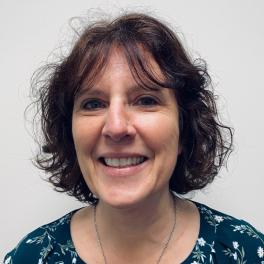Graduate alumni are using their skills in many lines of work. Career allies can support graduate students as they discern what career path is right for them. “Flight Paths” is series of alumni profiles — produced by the Global Arts and Humanities Imagined Futures: Graduate Professional Development Initiative— that highlights the key roles mentors play in equipping graduate students to imagine and prepare for a diverse array of meaningful careers. Each story describes a mentorship strategy that alumni found pivotal to their career success.

Building a New Professional Identity
Anna Travis didn’t expect a PhD in Latin American history to lead to a career in the juvenile justice system—but she has found meaningful and impactful work there. Like many PhDs, Travis first turned to adjunct teaching and freelance language translation. With a strong command of Spanish, she began interpreting in local courts, which eventually evolved into more consistent roles within the legal system. Over time, she transitioned from interpretation to special projects in municipal and juvenile courts. These roles allowed her to draw on the same core skills she'd used in academia: research, writing, and teaching.
Today, Travis is the Safe Harbor Program Coordinator for Delaware County Juvenile Court. She works with youth affected by or vulnerable to human trafficking. She coordinates a multidisciplinary response team, facilitates prevention programming, and offers technical assistance to other courts around Ohio. Despite the challenging nature of the problems she faces, she has satisfaction in the work. “When I see a success, and the success is not measurable in the way we always think,” she starts, “being able to see this progress [of the youth] and understanding that progress isn’t linear but as long as it’s forward in some way that’s very satisfying and exciting to be a part of.”
Though the subject matter of her work has changed from grad school to today, the work still satisfies the same intellectual and pedagogical missions. Travis develops educational materials, delivers public presentations, and supports program design. “Doing trainings is like presenting a paper,” she says. “Facilitating programs’ curriculums lets me scratch that teaching itch.”
Career Transitions Require New Tools
Travis credits her advisors, Donna Guy and Ken Andrien, with providing excellent academic mentorship, including strong training in writing, research, and grant applications. But she had to forge her post-academic path on her own. “At the time, I didn’t feel like the graduate school was really great at helping PhD students synthesize those skills to apply them to other sectors,” she recalls. “I had to learn how to translate my CV into a résumé that made sense outside academia.”
With guidance from a professional résumé writer and a career coach, she reframed her strengths for a new audience to emphasize collaboration, synthesis of complex information, and program development. Those strategies helped her land her first court job, and she encourages current graduate students to invest in similar resources. “When I got the first edit of my résumé back, I thought—wow! I’m really amazing. I rock,” she laughs. Career development resources helped Travis recognize and articulate the valuable skills she already possessed but hadn’t known how to market.
She also emphasizes the importance of institutional follow-through. Once graduates learn how to reframe their skills, departments should stay connected to alumni who take those alternative paths. “If you have an advisee that takes a different path, don’t lose touch with them,” she urges. “Keep reaching out… help build that networking for future students.” She believes departments can play a key role by inviting alumni back to speak, offering tailored career guidance, and fostering cross-sector networks that support students considering a range of careers.
The Takeaway
Travis' journey from Latin American history to human trafficking prevention shows that doctoral training can open many doors. The language, communication, research, and teaching skills cultivated in graduate school can lead to work that transforms lives in unexpected ways.
